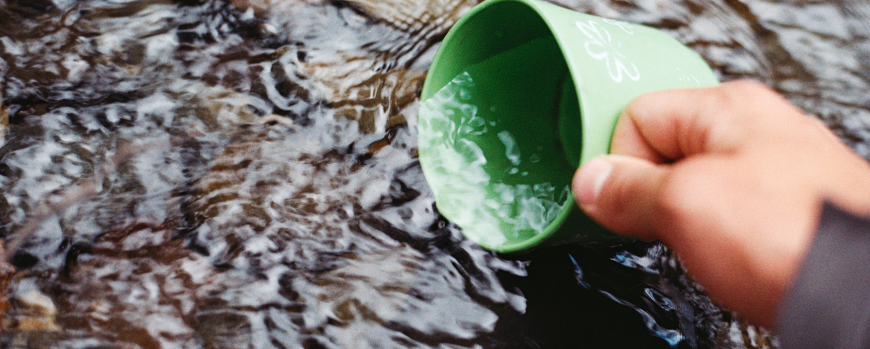Background
Water is the foundation for life on Earth, the blue planet. Existence and well-being of humankind depend on the availability of fresh water. Water bodies are habitats for countless creatures that live in complex ecosystems including rivers, lakes and wetlands. The movement of water, both in liquid form and as ice, shapes landscapes through erosion, transportation and sediment deposition. River networks traverse our landscapes and form the main transportation routes for water and sediments.
Throughout history, people everywhere have found ways to harvest water for everyday use. Water is an essential resource not only for direct consumption and personal hygiene, but also for food production. It provides a wide range of ecosystem services that nature and society have come to rely on. Households and communities have formed a variety of unique relationships with water that extend beyond mere physical needs and often have cultural and symbolic significance. In parallel, societies have taken structural and non-structural measures to protect themselves from floods, whether through dams or by avoiding hazardous zones. These hydro-social interactions are highly dynamic and responsive to change in hydrometeorological conditions, land use, water management, society and infrastructure.
Extremes
Water extremes resulted in three quarters of all natural disasters in the first 20 years of this century, impacting over 100 million people annually. However, floods and droughts are not purely natural phenomena but arise from complex interactions between the environment and human activities. These interactions lead to ever changing risk landscapes that we do not yet fully understand and, thus, find difficult to project into the future. Floods and droughts cause by far the greatest financial losses from weather-related disasters – around half a trillion euros in Europe alone over the last 40 years. Water extremes and their cascading and compounding effects are among the most influential and likely systemic risks to humanity. Today, almost 800 million people do not have access to adequate and safe drinking water. Protecting communities from excess water and from water scarcity today and in the future is among the most important concerns for society. Anthropogenic climate change, population growth, urbanization and environmental degradation are leading to more people living in at-risk areas and to changing vulnerabilities.
Europe, Germany and Brandenburg
Europe's climate is warming faster than any other region of the world. While the global average temperature is rising by around 0.2°C by decade, it is almost 0.5°C in Europe. This accelerated warming has severe consequences for water resources and water extremes. Heatwaves occur more frequently and intensively, and extreme events such as droughts and heavy rainfall are increasing considerably. For Europe, we expect that an atmospheric temperature increase of 2°C would double economic losses from flooding while economic losses from droughts might triple. Whereas regions in southern Europe and the Mediterranean already experience frequent droughts, wetter regions such as Germany will experience particularly dramatic changes in hydro-climatic conditions.
Challenges for managing water during dry periods are particularly evident in Brandenburg. Low annual precipitation and sandy soils with low water storage capacity characterize this region, which is considered both “water-rich and water-poor” for good reasons. Increasing impacts of anthropogenic climate change will likely lead to changing rainfall and evaporation patterns, with consequences for water supply to soils, rivers and groundwater aquifers. We can expect more stress for aquatic ecosystems due to changing river flows, while changing soil moisture and groundwater levels will negatively impact agriculture, forests and terrestrial ecosystems. Furthermore, in the coming decades, large areas of southern Brandenburg will have to compensate for a massive water deficit caused by decades of groundwater pumping as part of lignite mining.
Today’s and tomorrow’s water challenges are a result of complex interdependent political, technological, biological and physical processes and factors, creating an uncertain water future. The Potsdam WaterHub provides a dynamic community and platform to support Brandenburg’s water researchers across institutions, faculties and disciplines in their efforts to network, exchange ideas and develop innovative and interdisciplinary collaborations. Only together can we understand and tackle the increasingly complex water problems the world is facing.
We also want to enter a dialog with the interested public, media representatives, political decision-makers and those responsible in business and industry about pertinent water issues. Thus, using our research and innovations to contribute to sustainable solutions for and adaptation to global change in the context of water.

